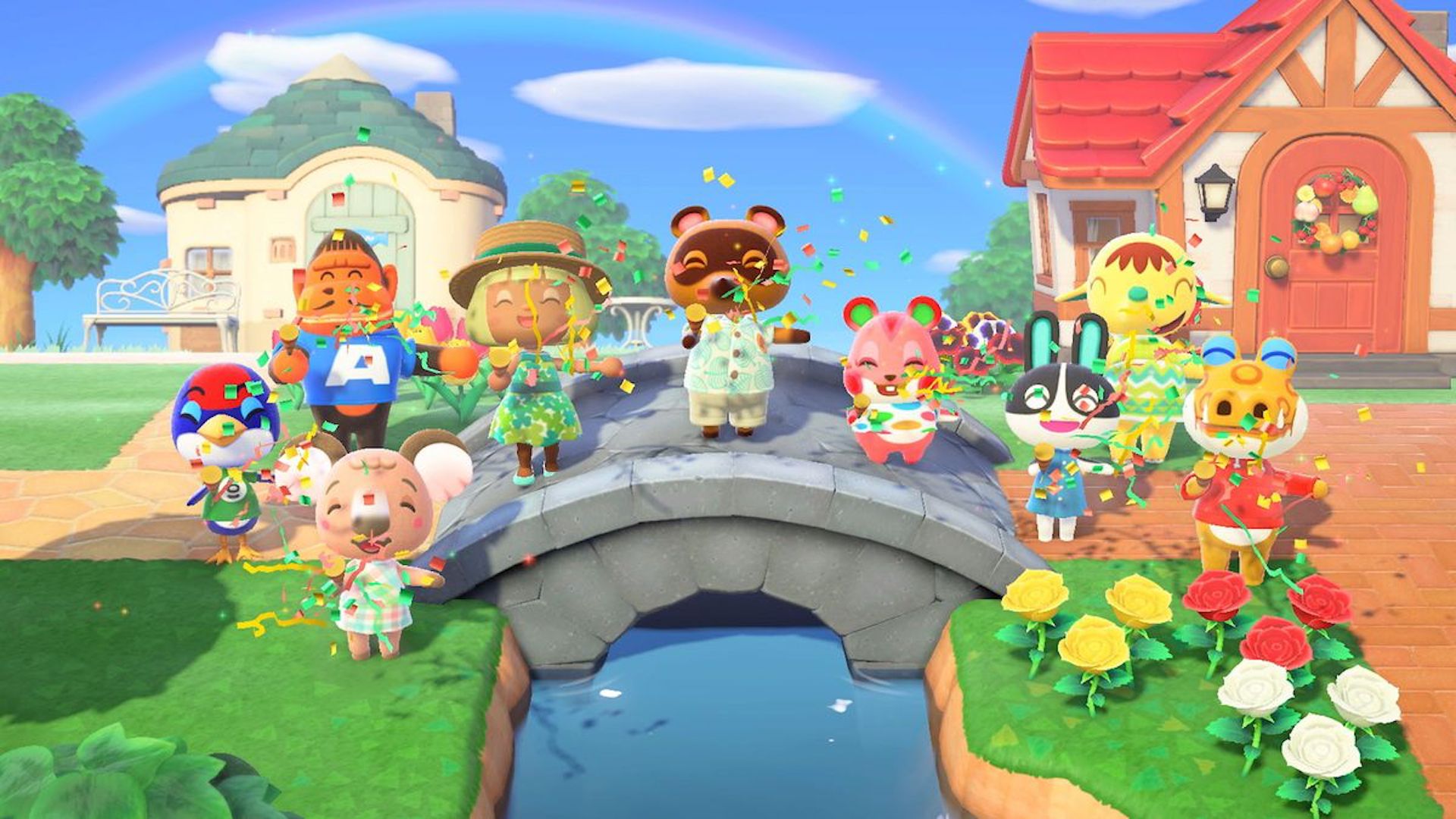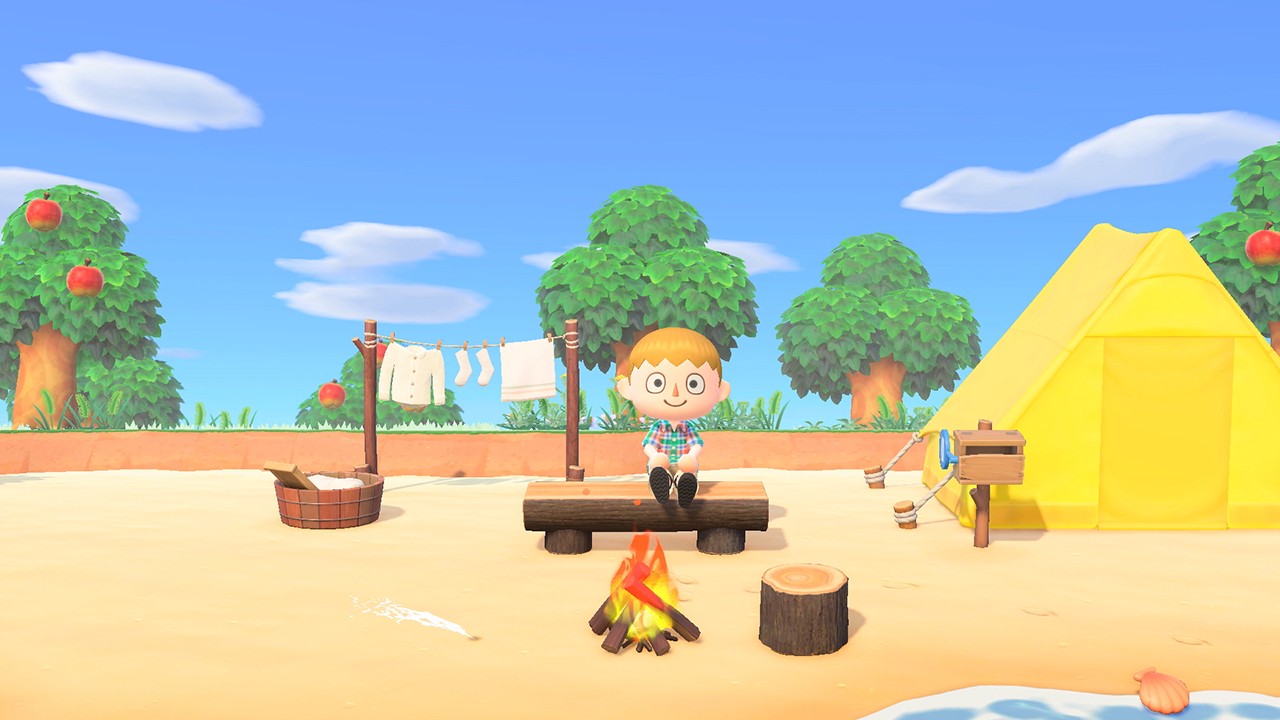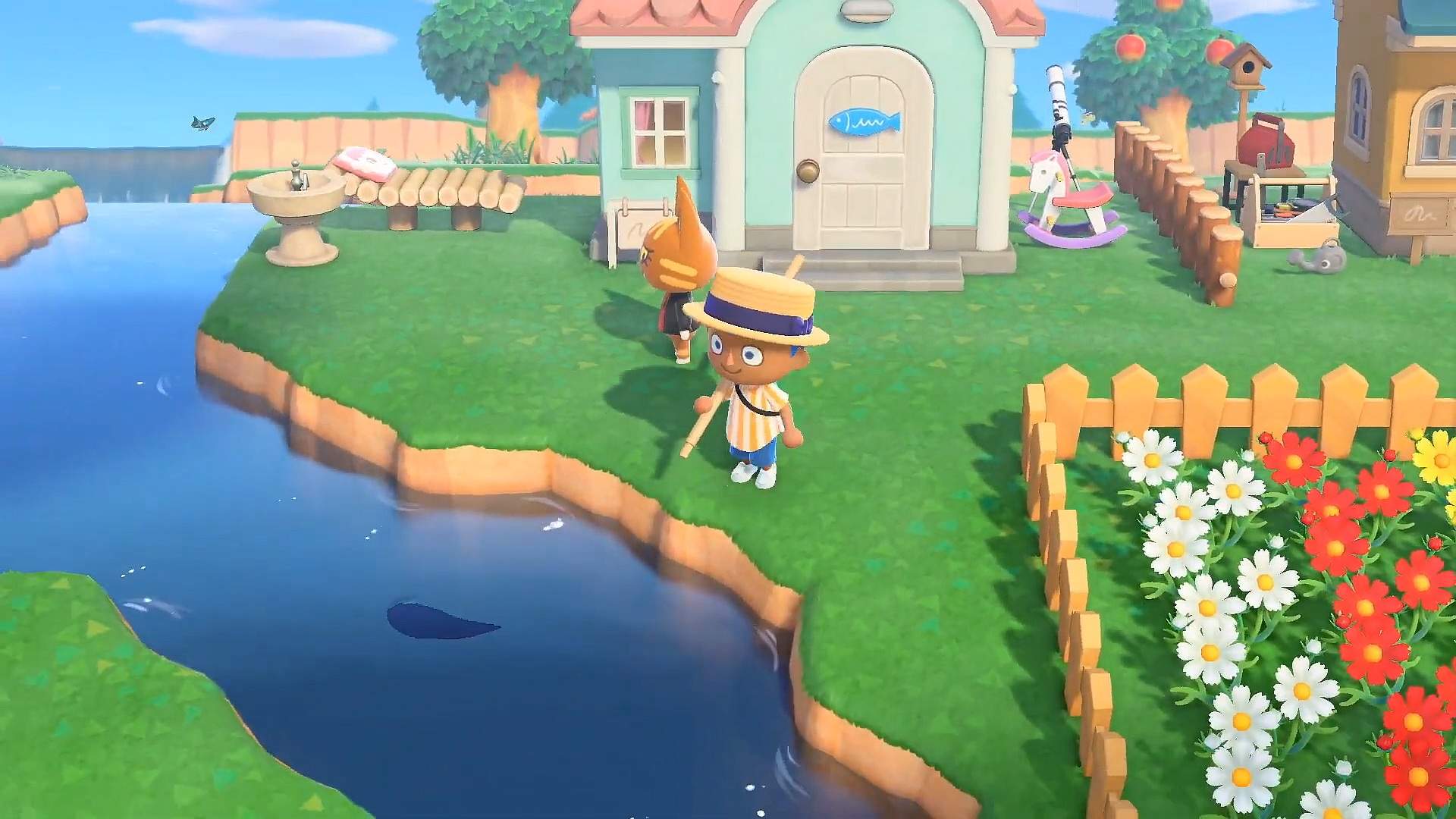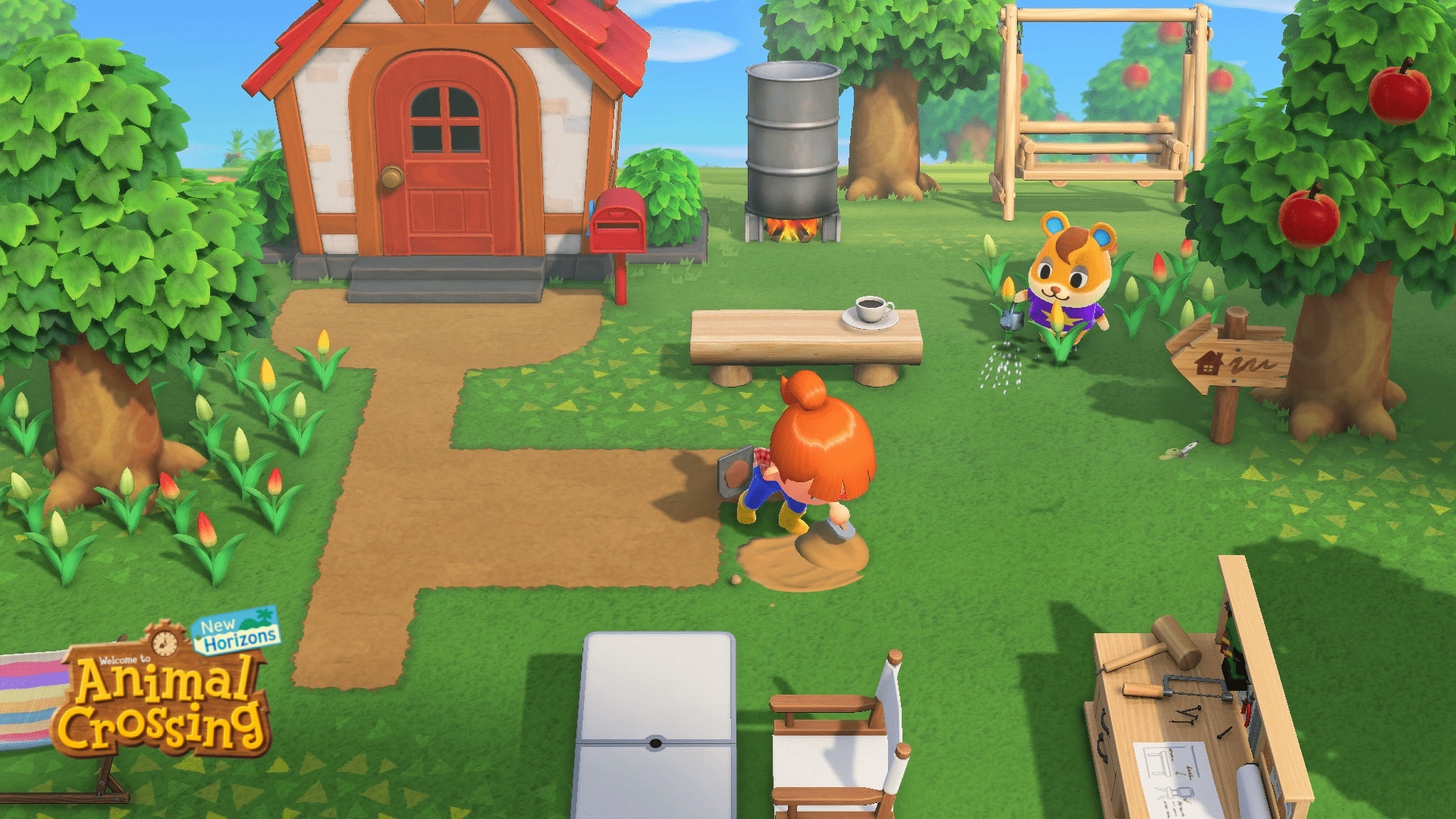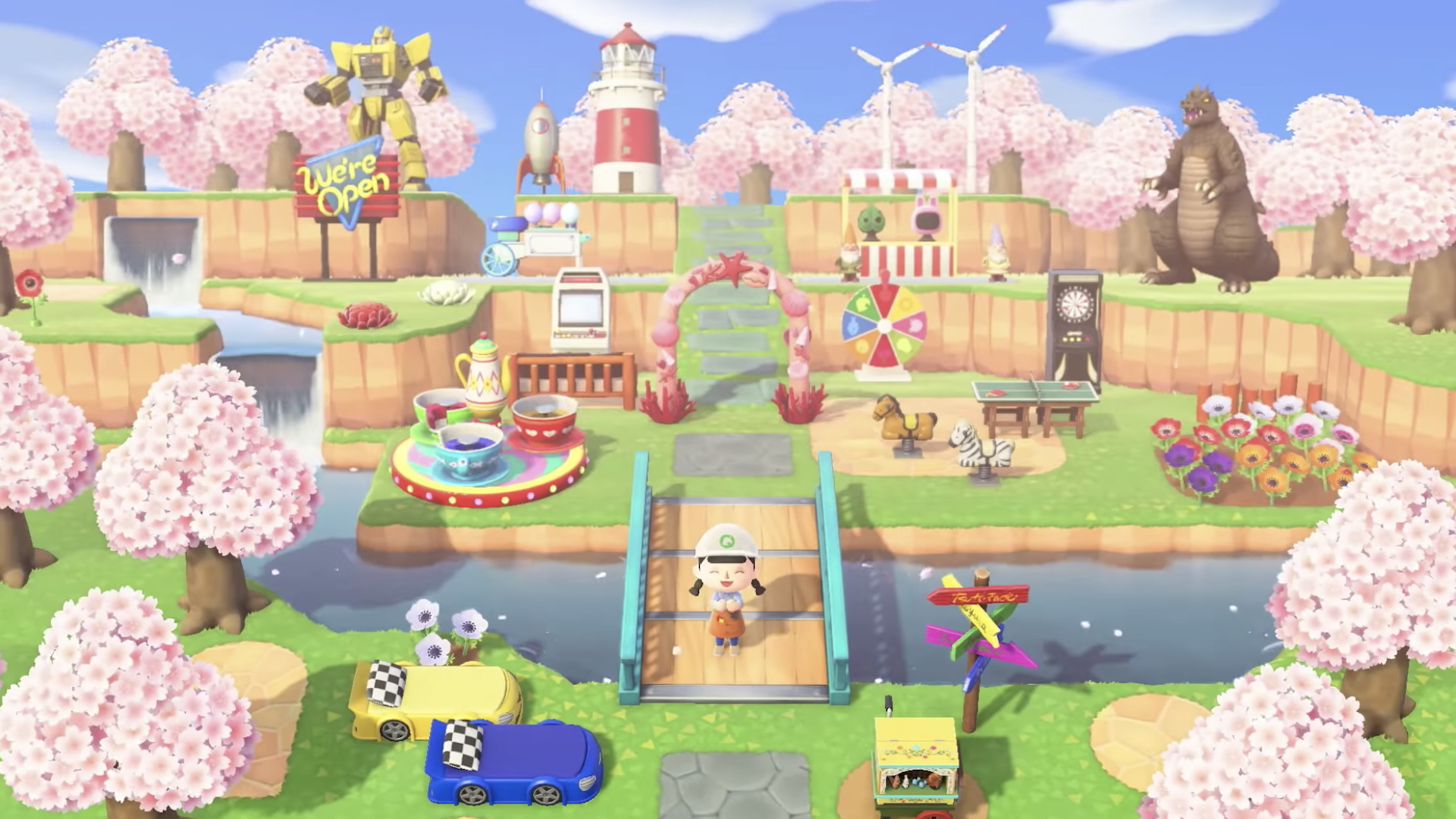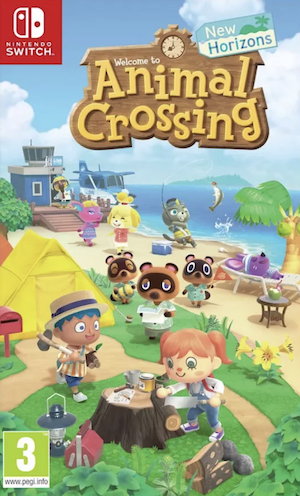
Animal Crossing is a game about catching bugs, fishing, chilling with your zany anthropomorphic neighbours, and paying off home loans- most of which you do with repeated presses of a single button. On paper, it should not work. If you were to explain its premise to someone who’s never played an Animal Crossing before, their first question would be, “why would anyone play that?” Their second question would probably be, “why was this even allowed to be a game?”
It’s not just a game about about routines, it’s a game about the most mundane of routines, and it revels in that mundanity. It should not work. It should not be fun. And yet it is- every single time, no matter how much you play it. There’s an indescribable charm to Animal Crossing that can sink its claws into the most unsuspecting of victims, and when that inevitably happens to you, you’re in it for life. And in keeping with Nintendo’s track record of Switch releases for most of their major franchises, Animal Crossing: New Horizons is the best this weird, wonderful series has ever been.
"In keeping with Nintendo’s track record of Switch releases for most of their major franchises, Animal Crossing: New Horizons is the best this weird, wonderful series has ever been."
New Horizons introduces plenty of major new mechanics that significantly improve the series’ tried and true formula, but its greatest strengths lie where Animal Crossing’s greatest strengths have always been. The easygoing nature of the game that lets it be as calmingly chilled out or as much of a hardcore grind as you want it to be; the adorable animals with quirky personalities that live out a peaceful life alongside you; the ingenuity and addictiveness bred by the utter simplicity of its most fundamental mechanics. Since the days of the GameCube (or the N64, if you’re in Japan), these have always been Animal Crossing’s biggest selling points, and that’s the case with New Horizons as well.
In proper Animal Crossing fashion, you have limited control over progression. The game runs in real-time- minutes, hours, and days pass as they do in the real world, and while you’re always free to do whatever you want and free to plan out and work towards your next goals, the most major events adhere to that passage of time. Your actions dictate how quickly you can unlock a proper shop, or a museum, or an emporium for boots, and how quickly, in turn, you can gain access to the new abilities and upgrades that go hand-in-hand with all of that, but there’s only so much you can do. Even if, for instance, you’ve met all the required criteria to open up a museum at nighttime, it will still only open up on the next day.
That relaxed pace, which all but forces you to take things slow and stop and smell the roses, works just as well in New Horizons as it always has. In fact, several new mechanics introduced in the game act as perfect foils to that pace, and balance it out to a great extent. The one most responsible for that is Nook Miles, an in-game currency that you get for doing- well, basically just about anything. From the simplest of actions – like talking to your neighbours or catching a fish – to more long-term goals – like reaching a certain number of days spent on the island or gradually filling up your Critterpedia – nearly everything you do rewards you with Nook Miles.
"New Horizons introduces plenty of major new mechanics that significantly improve the series’ tried and true formula, but its greatest strengths lie where Animal Crossing’s greatest strengths have always been."
This currency is then used to purchase a limited selection of items, crafting recipes, plane tickets, or even gameplay benefits, like an expanded inventory, or a radial wheel that lets you access and equip all your tools much more quickly. As such, even when you’re aimlessly wandering about the island and doing whatever you feel like without a particular goal in mind, you still feel like you’re making progress, like you’re working toward something- because you’re rewarded for pretty much anything you do. It provides a level of structure to the game, but best of all, owing to how much of a constant presence it is, that structure doesn’t feel enforced. You might choose to work toward a specific milestone in the Nook Miles program, or you might choose to completely ignore it and take a much more relaxed approach, and either way, you’d be rewarded for it. It provides as much structure as you want it to.
In some ways, the game does rely on Nook Miles a bit too much- more specifically, it does so when it comes to the uncharted islands you can visit and explore. Similar to Tortimer’s Island in Animal Crossing: New Leaf, New Horizons allows you to hop aboard a plane and fly to an uncharted island to collect resources, meet new people, and catch rare fish and bugs. You visit a different island every time, which means this is an essentially endless source of all the aforementioned things, but the game places some restrictions on you by making it so that you have to purchase tickets with Nook Miles every time you want to go on these expeditions.
It’s especially a problem in the first couple of days, when you’re just starting out and the Nook Miles are amassing at a much slower pace, though the restrictions do thankfully start letting up as you continue to make more progress and the Miles keep raking in. Even so, when you go to these islands and your tools break, you don’t have the option to rent new tools for as long as you’re there. You have to purchase new ones, and though they’re not terribly pricey, the unnecessary dent they make in your cache of Miles can still sting.
"You might choose to work toward a specific milestone in the Nook Miles program, or you might choose to completely ignore it and take a much more relaxed approach, and either way, you’d be rewarded for it. It provides as much structure as you want it to. "
Tools breaking is an issue even outside of these uncharted islands. Animal Crossing: New Horizons introduces a durability mechanic- but durability mechanics always run the risk of being an active hindrance in any game, and that is very much what they are here. In all the time I’ve spent with the game so far – and I’ve spent a lot of time with it – I’ve failed to understand why durability needed to be a thing. It adds nothing- in fact, it is actively annoying. What’s even worse is the fact that there isn’t even a durability meter that shows you how close your tools are to breaking, which means you often have to bring spares- which eats up precious inventory space.
Crafting is the most major new feature introduced in New Horizons, and thankfully, durability is the only by-product that doesn’t work out well- because everything else to do with crafting is a delight that adds immensely to a game that is already dangerously addictive. It fits into the Animal Crossing loop perfectly. While you’re shaking out branches, or chopping up trees, or smacking on rocks, or collecting seashells – things that we’ve been doing in Animal Crossing games for years anyway – you also constantly gather resources, which are used to make everything from tools to furniture.
You can only craft something, however, if you have a recipe for it, and recipes can come from various avenues- from opening bottles that have washed up on the beach, to being purchasable with your Nook Miles or Bells, to simply talking to your island neighbours, while some are simply handed to you. Every new recipe you get comes with a rush of excitement over what new things you’ll be able to craft, while grinding for resources proves to be appropriately zen-like and oddly therapeutic, to the extent that you might spend long stretches doing nothing but simply chopping up trees to get more wood.
"Crafting is the most major new feature introduced in New Horizons, and thankfully, durability is the only by-product that doesn’t work out well- because everything else to do with crafting is a delight that adds immensely to a game that is already dangerously addictive. It fits into the Animal Crossing loop perfectly."
More than anything else, though, the biggest improvement crafting brings about is a bevy of customization and personalization options, which allow you to exert greater control than ever over how your own house looks, and how your entire island looks. Moving around furniture in your house is simpler and more convenient than ever, but even more noteworthy is the fact that you can finally place furniture outdoors, almost anywhere you want on your entire island. Do you want to build an outdoor observatory on a small hill? Go for it. Want to make a large, beautiful lawn full of patio furniture and flowers right outside your house? You sure can. Looking to turn the beaches of your island into proper party spots? Just throw out some beach balls and beach beds and you’re there.
The level of control you have over how your island develops feels empowering and rewarding, especially when combined with the way progression is structured. There’s something so uniquely satisfying about turning a completely deserted rock in the middle of an ocean into a thriving and beautiful paradise. Add to that newly added terraforming options, which allow you to create or remove hills and water bodies or pave proper paths wherever you want, and that empowering feeling becomes even more amplified.
Animal Crossing: New Horizons is also a beautiful game, in the charmingly unique way Animal Crossing games always are. But beyond sporting the adorable art style so closely associated with the series, New Horizons also spruces things up with unexpected flourishes. Sunsets look mesmerizing, the ocean sparkles beautifully at night, flowers vividly stand out amidst all the greenery, and even the bugs and fish look more detailed than ever. No, this isn’t a technical benchmark for video games, but there’s just the right amount of detail here that acts as the perfect foil to the trademark Animal Crossing aesthetic. I can’t wait to see how my island looks when the trees bloom during Spring, or when snow settles over everything in Winter.
"The level of control you have over how your island develops feels empowering and rewarding, especially when combined with the way progression is structured. There’s something so uniquely satisfying about turning a completely deserted rock in the middle of an ocean into a thriving and beautiful paradise."
There are a few quality of life issues, however, which are worth mentioning. New Horizons makes plenty of much-needed QoL improvements in some areas, while also bafflingly omitting to do so in others. For instance, most items that you purchase in shops have to be bought one at a time, other than specific exceptions that can be bought in bulk. Similarly, when you’re crafting items, you can only craft one unit at a time, rather than being able to craft as many as you want right away- and given how big a part of the game crafting is, this in particular can be quite annoying. QoL issues are mostly minor ones such as these, but while they’re minor in isolation, they do come together to become collectively frustrating. Hopefully these problems are ironed out in future patches.
Minor annoyances aside, Animal Crossing: New Horizons is an absolute gem. It is a charming, adorable game that takes you away on a magical, peaceful getaway, where everything is calm and relaxed and, most importantly, fun. In the world that we live in right now, it’s exactly the sort of game all of us need. It’s the culmination of the series’ formula, the zenith of everything Animal Crossing is about, and one of the best games Nintendo have produced in years.
This game was reviewed on the Nintendo Switch.
The classic Animal Crossing gameplay loop is as charming and addictive as ever; Relaxed progression that lets you take things at whatever pace you want; Nook Miles lend a welcome level of structure to the experience; Crafting is a major new mechanic that adds to the game immensely; A bevy of customization and personalization options; Turning your deserted island into a beautiful paradise is incredibly satisfying; Looks great.
A bit of an over-reliance on Nook Miles; Durability is an actively annoying mechanic; Quality of life issues.









